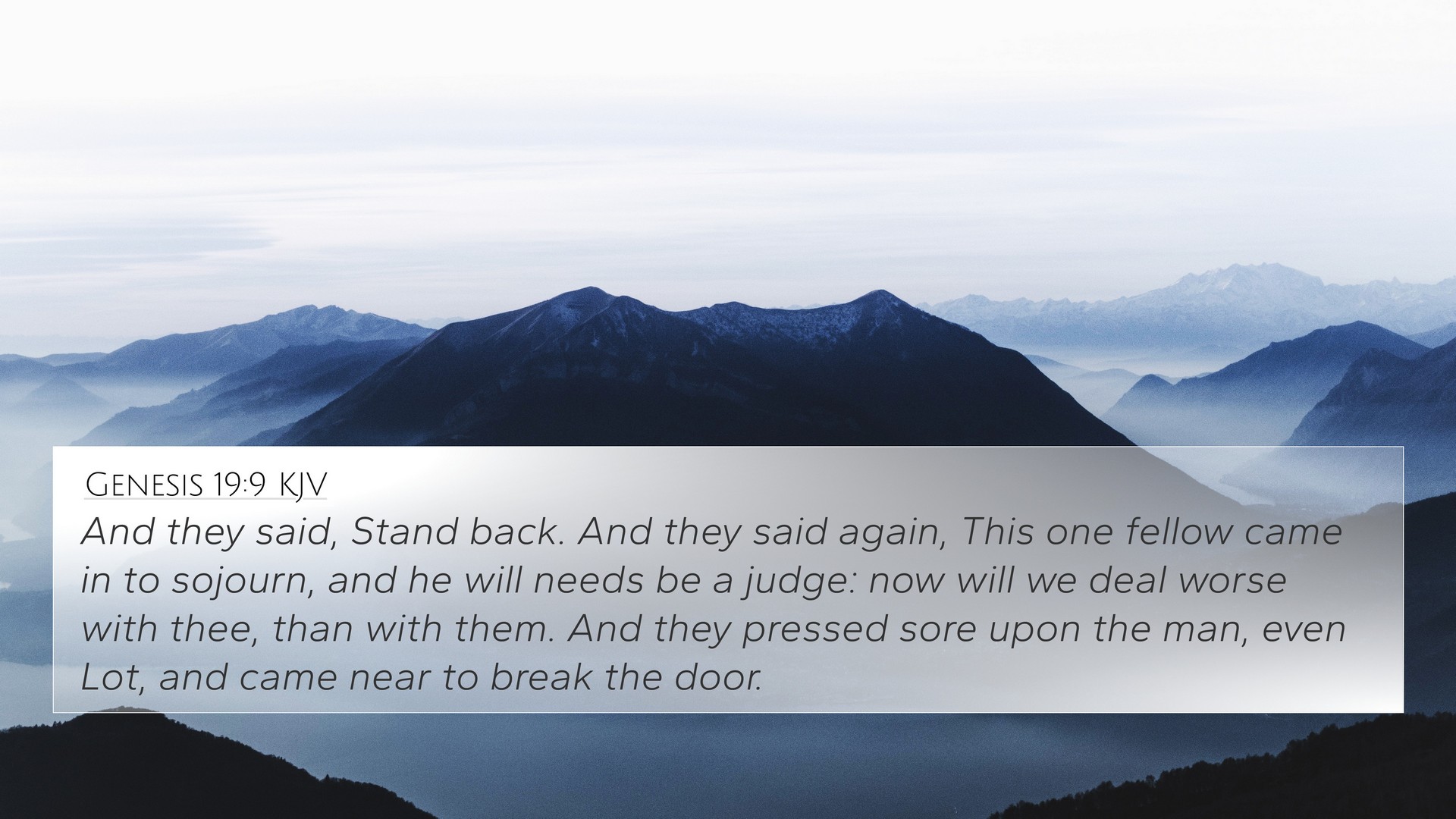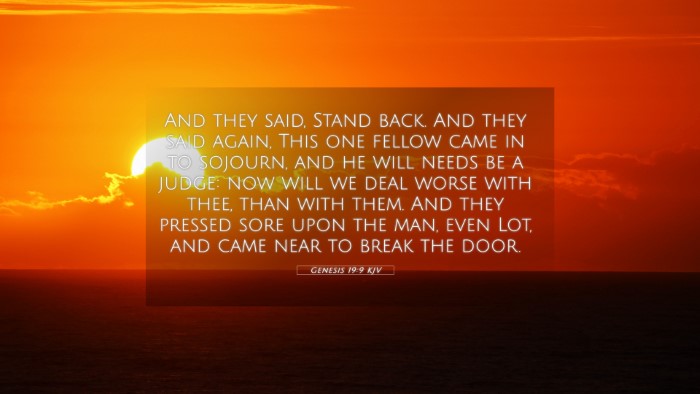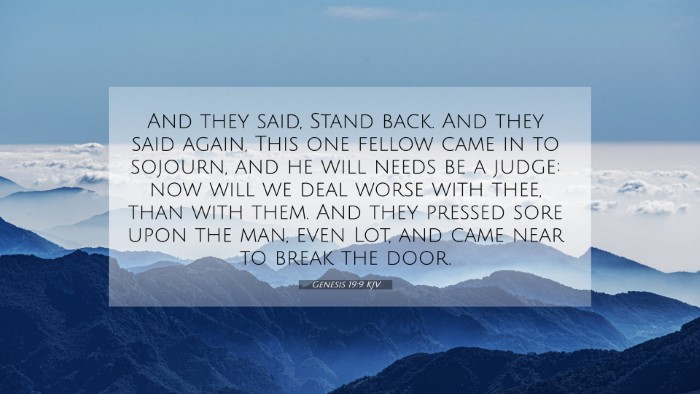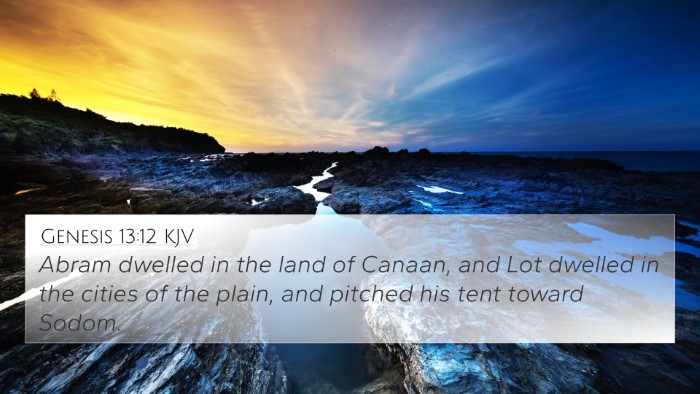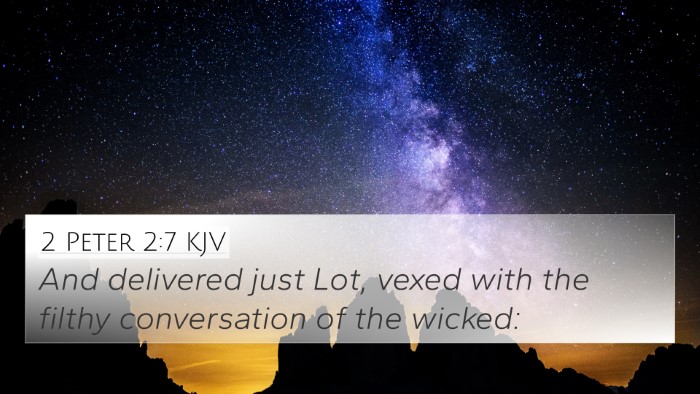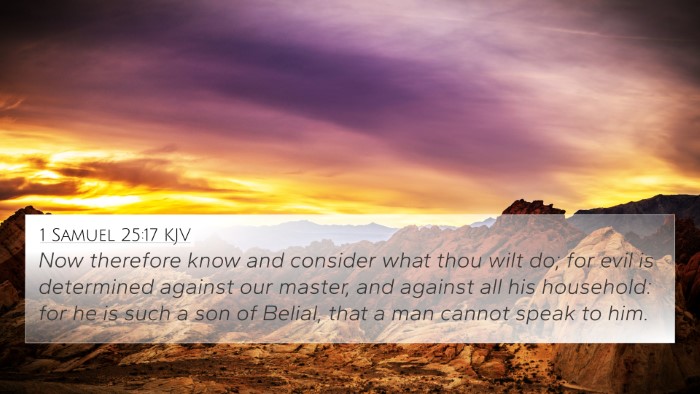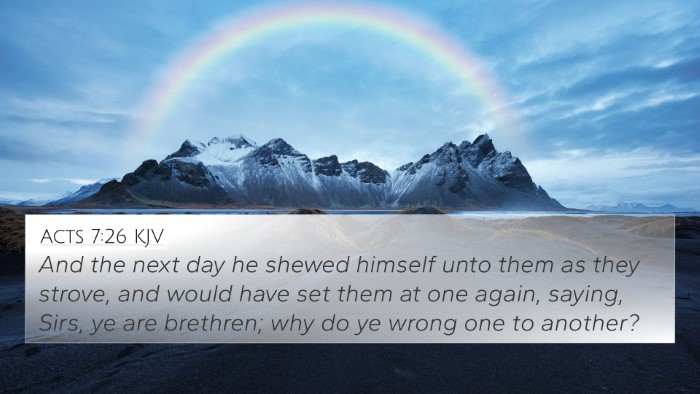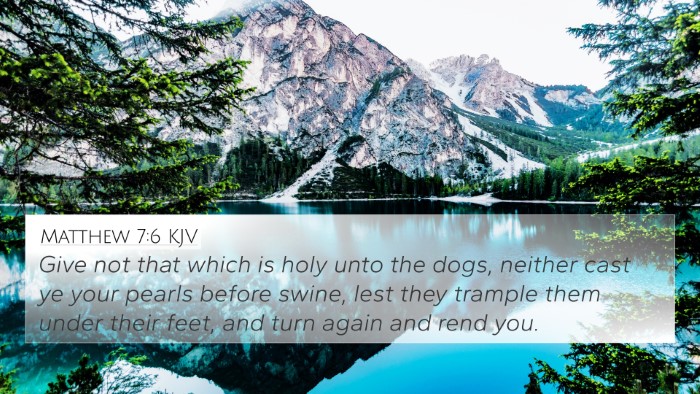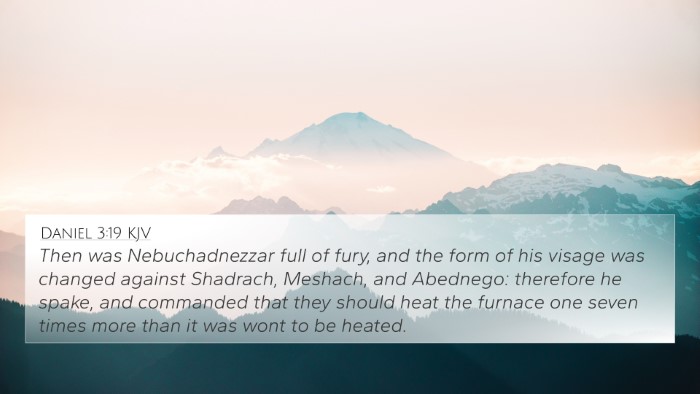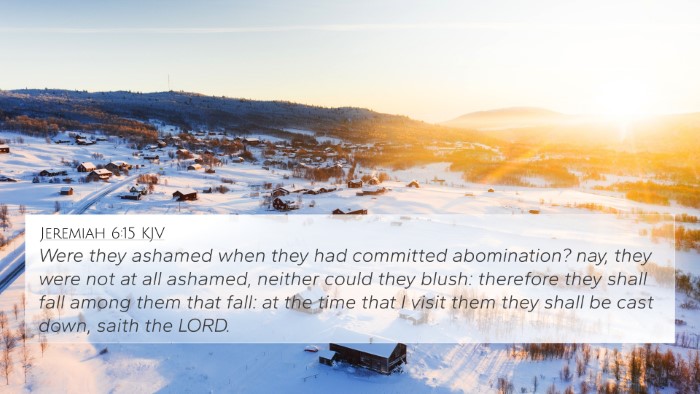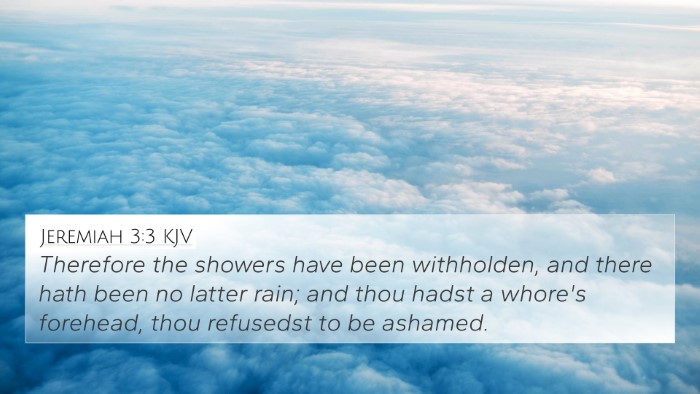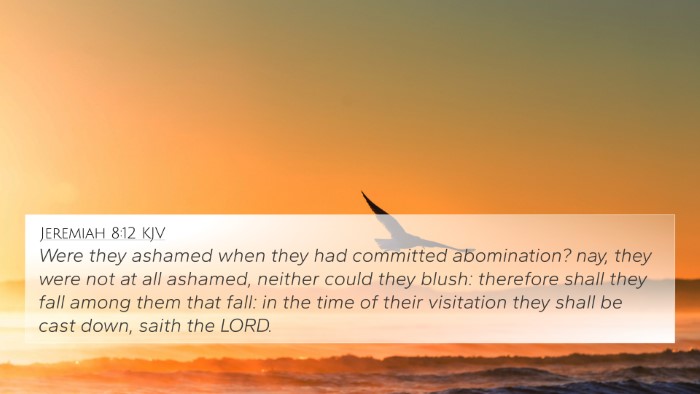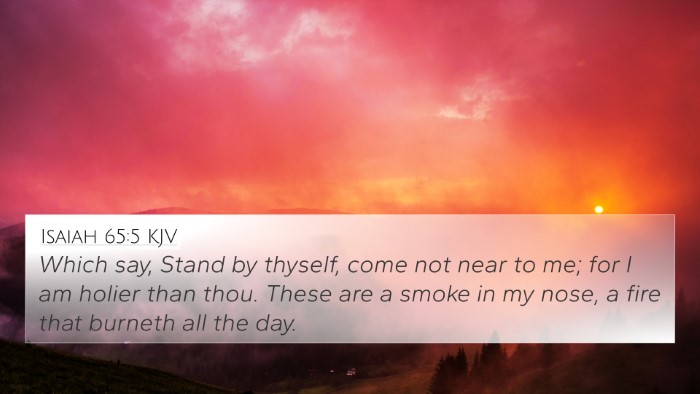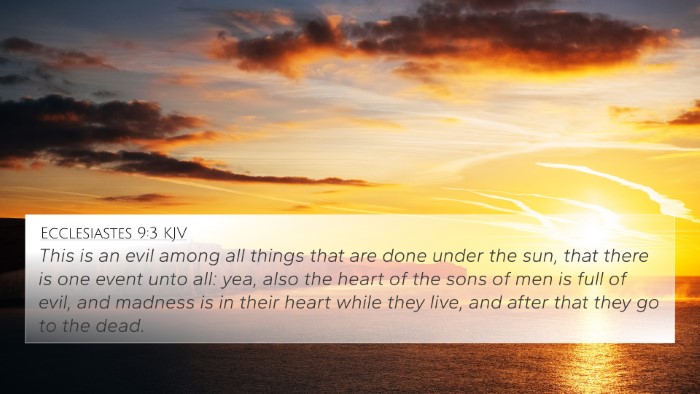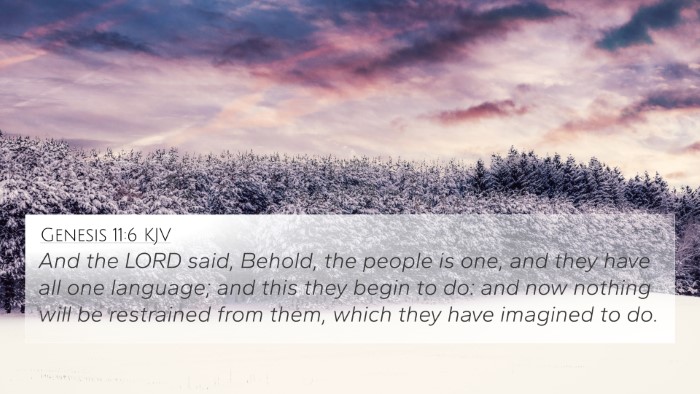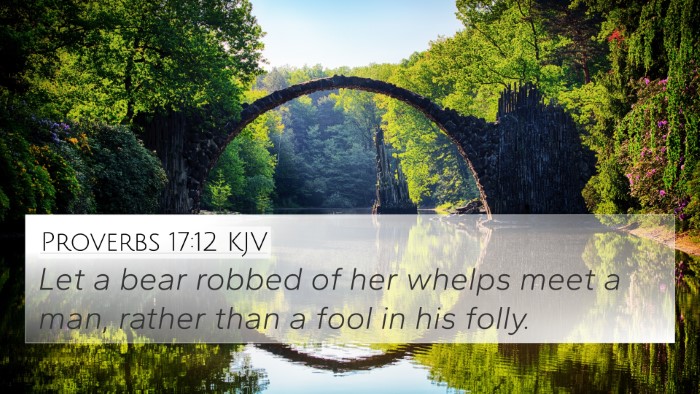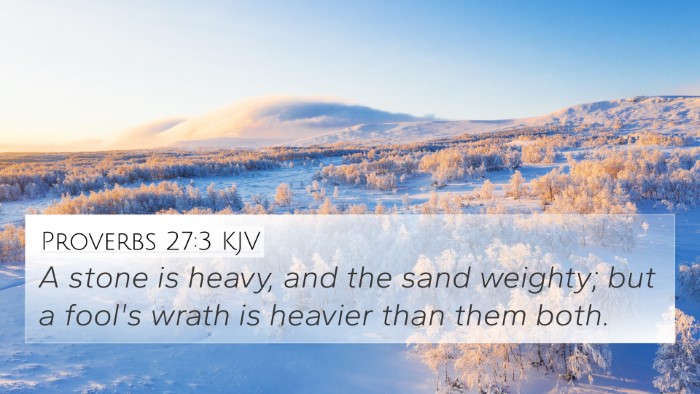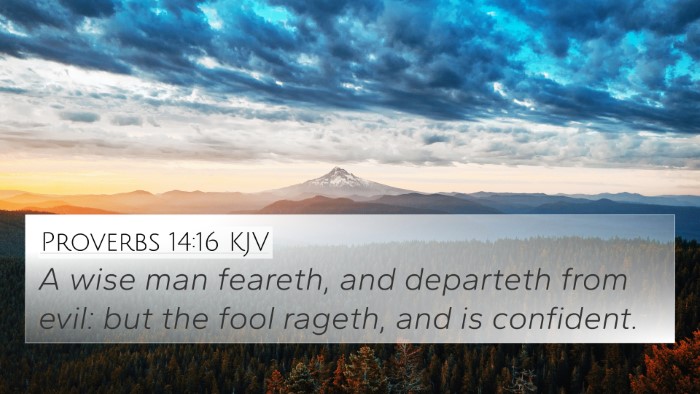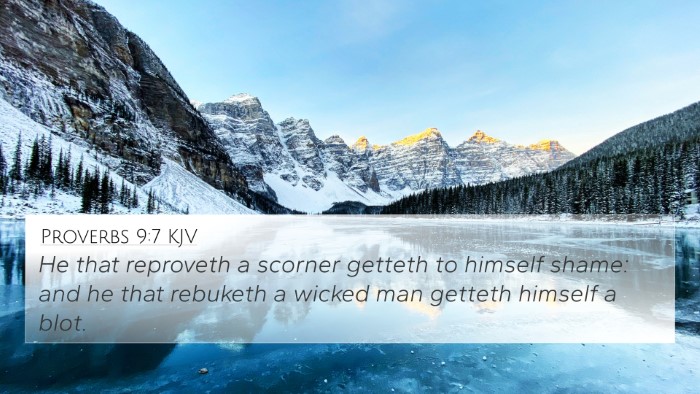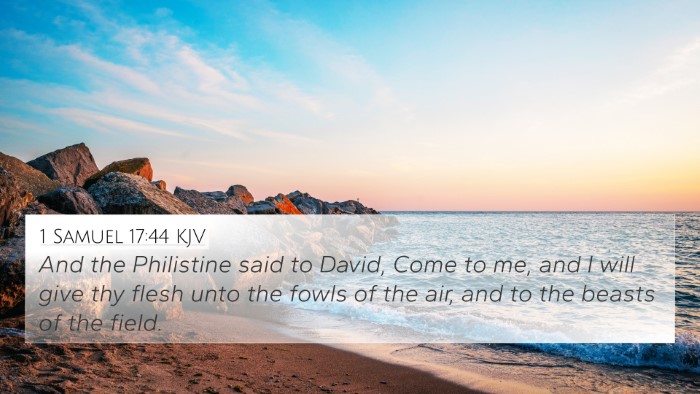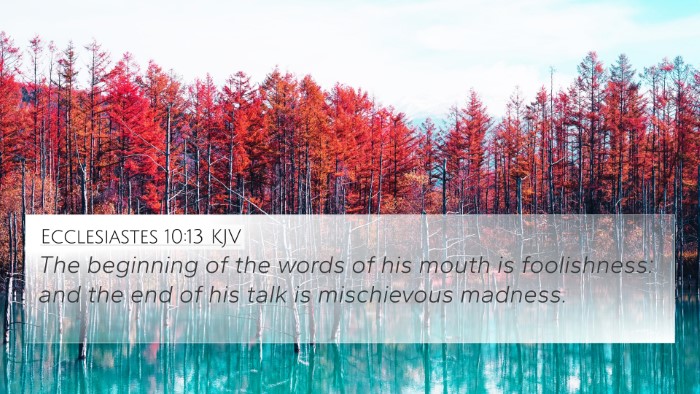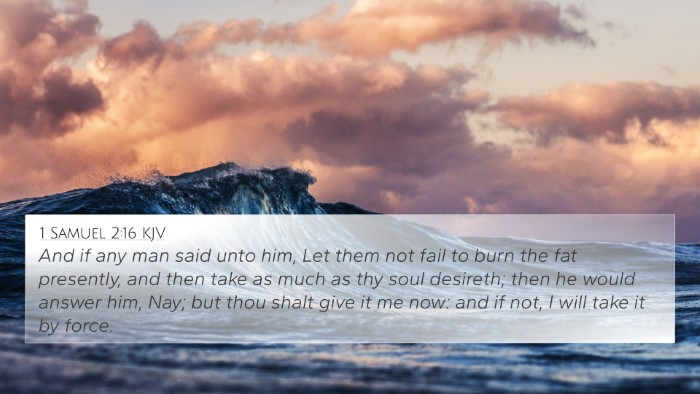Understanding Genesis 19:9
Genesis 19:9: "And they said, Stand back. And they said again, This one fellow came in to sojourn, and he will needs be a judge: now will we deal worse with thee than with them." This verse occurs in the context of the destruction of Sodom and Gomorrah, where Lot, the nephew of Abram, attempts to protect two angels who have come to his house.
Summary of Insights from Public Domain Commentaries
Matthew Henry's Commentary
Matthew Henry emphasizes the depravity of the Sodomites, illustrating their wickedness and the intense moral decay present at that time. The response of the men of Sodom shows their lack of reverence for the visitors and highlights their desire to dominate and humiliate Lot. Henry argues that the men regarded Lot not as a resident but as an outsider, which leads to their contempt for his warnings and judgments.
Albert Barnes' Notes
Barnes provides insight into the historical and cultural implications of this encounter. He explains that Lot’s position as an alien in the community is pivotal. The harsh reaction against Lot suggests that the Sodomites felt their actions were justified in rejecting an alien who dared to judge them. Barnes also discusses the spiritual blindness that can lead societies into vulnerability to sin, making them hostile against any form of correction.
Adam Clarke's Commentary
Clarke presents a detailed view of the sociopolitical context around Lot’s confrontation. He underlines the irony that Lot, who sought to protect the angels, was in turn facing threats from the very people he tried to defend. Clarke highlights the fulfillment of the prophetic judgment against Sodom, and interprets the hostile attitude of Sodomites as a foreshadowing of the ultimate divine judgment they would face.
Cross References Related to Genesis 19:9
- Genesis 13:13: "But the men of Sodom were wicked and sinners before the Lord exceedingly."
- Genesis 18:20-21: "And the Lord said, Because the cry of Sodom and Gomorrah is great, and because their sin is very grievous."
- Judges 19:22-25: A parallel incident highlighting similar moral decay in a different community.
- 2 Peter 2:6-8: Discusses Lot's righteousness and the condemnation of Sodom and Gomorrah as a warning.
- Luke 10:10-12: Jesus refers back to Sodom as a representation of rejection and judgment.
- Matthew 10:15: Jesus mentions that it will be more tolerable for Sodom on judgment day than for those who reject the gospel.
- Romans 1:24-27: Speaks of the consequences of turning away from God and indulging in sinful behavior.
- Revelation 11:8: Refers to a spiritually dead city, likening it to Sodom.
- Galatians 6:7: "For whatever a man sows, that will he also reap," emphasizing the moral consequences of actions.
- 1 Corinthians 6:9-10: Lists those who will not inherit the kingdom of God, drawing connections to the sinful nature of Sodom.
Thematic Connections and Interpretations
The episode of Genesis 19:9 evokes a rich intersection of themes within the scripture, such as judgment, morality, and the nature of hospitality. It serves as a staunch reminder of the consequences of sin and the often-hostile response that truth and righteousness can receive from a corrupted society.
Exploring Cross-Referencing
This verse provides an excellent opportunity to explore Bible verse cross-references and understand the connections between Bible verses. Through cross-referencing Biblical texts like the ones provided, one can gain a deeper understanding of the contexts and implications of Lot's confrontations.
Tools for Bible Cross-Referencing
- A comprehensive Bible concordance can aid in identifying related verses.
- Utilizing a Bible cross-reference guide enhances study efficiency and insight.
- Cross-reference Bible study methods allow for thematic exploration across the text.
- Employing Bible cross-reference resources fosters a deeper understanding of scriptural connections.
- Consider using a Bible reference system for systematic study.
Practical Application
Understanding Genesis 19:9 within its broader context and exploring its cross-references can be particularly beneficial for sermon preparation or personal reflection. Identifying Bible verses that relate to each other not only enriches one’s comprehension of the text but also highlights the unity of the Scriptures.
Conclusion
In engaging with Genesis 19:9 and its surrounding narratives, we are urged to reflect on the implications of our actions and the societal judgments we may encounter. The intertwining of themes and the cross-referencing of verses serve as tools not only for understanding but also for fostering a deeper relationship with Biblical teachings.
